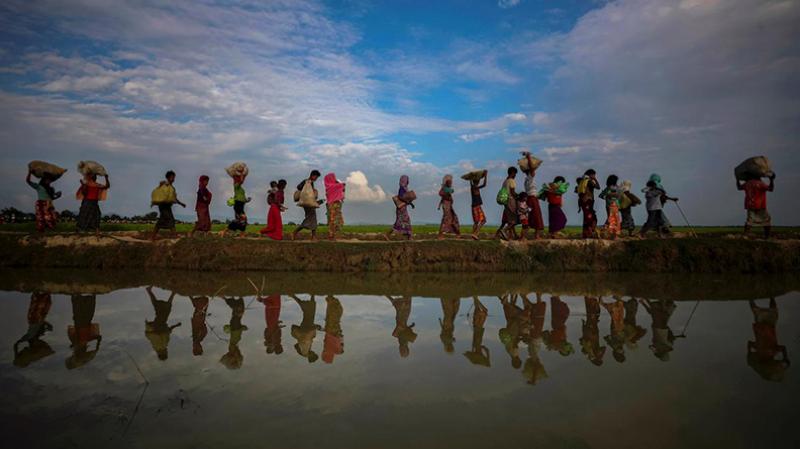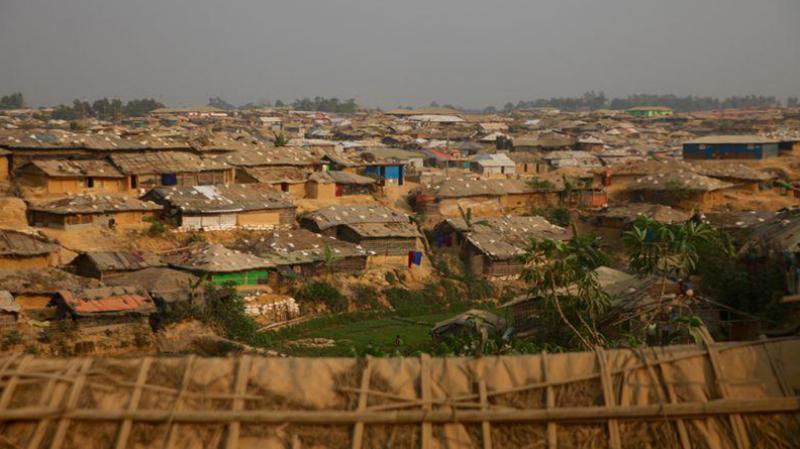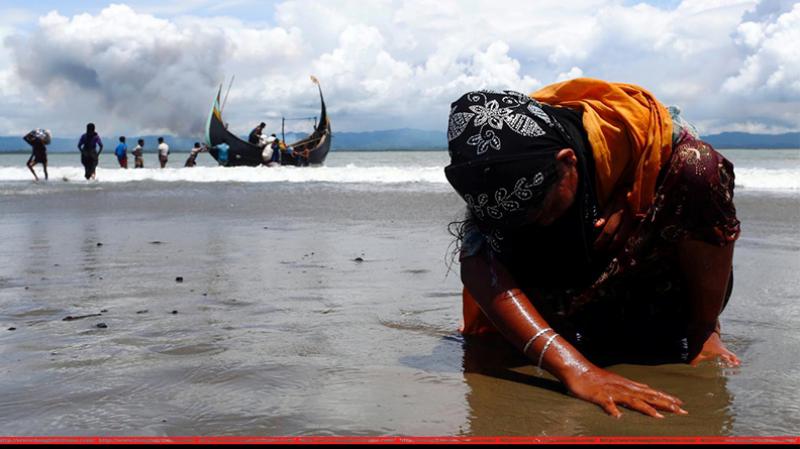 The Myanmar military forces have committed atrocities against Rohingya, who compelled to flee from their homeland Rakhine to Bangladesh.
The Myanmar military forces have committed atrocities against Rohingya, who compelled to flee from their homeland Rakhine to Bangladesh.
Since August last year, about 700,000 Rohingyas fled to Bangladesh and out of them, there are over 30,000 pregnant ladies, about 36,000 orphans and about 7,800 children whose both parents are missing.
Bangladesh has resorted to bilateral approach to repatriate the Rohingyas, but at the same time it also engaged with international community to ensure that it does not happen again.
“The rational is that this is the third time we are experiencing such type of occurrence and every time Myanmar made a promise but never kept it,” Foreign Secretary M Shahidul Haque told the Bangla Tribune.
He said, “Accountability part must be taken very seriously along with safe and dignified return. That is the primary objective of our foreign policy towards this crisis.”
The perpetrators have to be taken into task in order to stop the repetition of these kind atrocities not only this part of the world but also other part of the globe, he added.
In the past bilateral approach was the basic premise but later Bangladesh realised that bilaterally it was very difficult to address an issue which is regional and global in nature, the foreign secretary said.
“We are pursuing the matter bilaterally but at the same time we have taken it to the global space both through Geneva-based High Commission for Human Rights and New York based Security Council.”
The intention of engaging with the Security Council to make the Myanmar government convinced that they just cannot get away with ethnic cleansing, he said. Expectation from UNSC
Expectation from UNSC
Dhaka has handed over its expectation to the UNSC delegation, which visited Bangladesh in April.
“We want a binding resolution to have sustainable solution to resolve the crisis. We also expect Security Council, in that resolution, creates a space where accountability would be restored in Myanmar,” the foreign secretary said.
The UN Security Council team visited Bangladesh and Myanmar from April 28 to May 2 and they would sit in New York on May 14 to share their experience.
“From day one of the crisis, we were trying to get the Security Council engaged in this matter.”
ICC request for submission
The foreign secretary said the International Criminal Court had suo moto taken up the issue and requested Bangladesh to make a submission stating the facts.
“We are looking into it and we are considering that,” he said adding. “International human rights body got together and they would be making submission and asked Bangladesh to make submission.” The court has a history of taking up very difficult cases pursuing it for years after years and coming up with concrete outcome, he added.
The court has a history of taking up very difficult cases pursuing it for years after years and coming up with concrete outcome, he added.
“It is no longer an issue of building a couple of houses, roads and creating livelihood for these Rohingyas in Myanmar. It is much larger than that. It is basically giving them citizenship rights and giving them their land back.”
International public opinion
The international public opinion is shaping up against Rohingya repression as media and international NGOs are playing a vital role to aware the people to raise voices against it.
“When we are gradually fine tuning our foreign policy viz-a-viz Rohingya issue, we also realised that there is a huge international public opinion, which not only includes international NGOs but also individuals,” he said.
New York Times, Washington Post and The Guardian, the voices of international opinion, have long been carrying the Rohingya issue to create awareness globally.
“These critical mass globally want to settle the issue of accountability ones and for all,” the foreign secretary said.
 National
National
41259 hour(s) 58 minute(s) ago ;
Evening 10:53 ; Tuesday ; Jul 01, 2025
Rohingya crisis: Accountability leads to repatriation
Send
Sheikh Shahariar Zaman
Published : 11:25, May 13, 2018 | Updated : 11:31, May 13, 2018
Published : 11:25, May 13, 2018 | Updated : 11:31, May 13, 2018
0 ...0 ...
/ssz
Topics: Top Stories
- KOICA donates medical supplies to BSMMU
- 5 more flights to take back British nationals to London
- Covid19: Rajarbagh, Mohammadpur worst affected
- Momen joins UN solidarity song over COVID-19 combat
- Covid-19: OIC to hold special meeting
- WFP begins food distribution in Cox’s Bazar
- WFP begins food distribution in Cox’s Bazar
- 290 return home to Australia
- Third charter flight for US citizens to return home
- Dhaka proposes to postpone D8 Summit
Unauthorized use of news, image, information, etc published by Bangla Tribune is punishable by copyright law. Appropriate legal steps will be taken by the management against any person or body that infringes those laws.
Bangla Tribune is one of the most revered online newspapers in Bangladesh, due to its reputation of neutral coverage and incisive analysis.
F R Tower, 8/C Panthapath, Shukrabad, Dhaka-1207 | Phone: 58151324; 58151326, Fax: 58151329 | Mob: 01730794527, 01730794528


